Teaching in the era of Covid-19 lockdown in Morocco
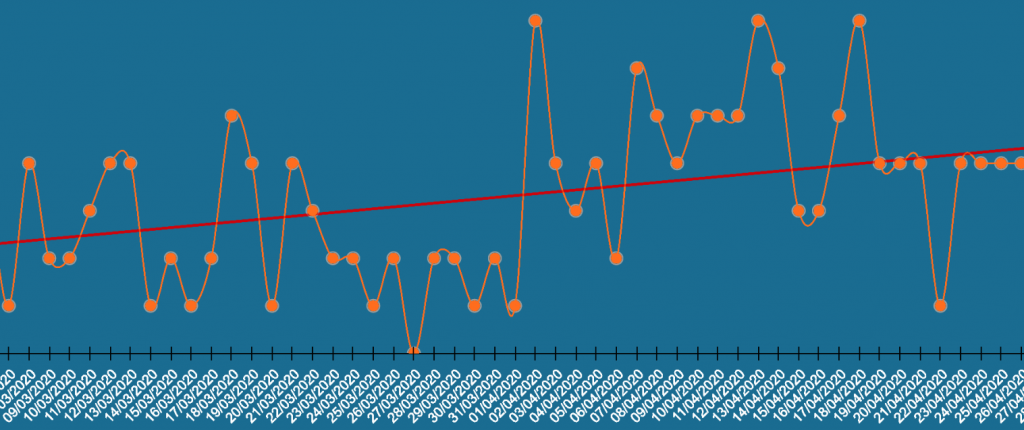
By Mohammad Moustaid and Soukaina El Mouhtadi
Distance education, infections of students and teachers with the coronavirus, exams : One of the many challenges of the pandemic was to meet the challenge of the spread of fake news
Public opinion in Morocco focused on the issue of education during the Covid-19 crisis, given the importance of this sector for the country’s development.
The press has worked to keep up with this interest, covering the closure of a number of educational institutions due to the infection of students and teachers with the disease, as it occurred in various parts of the world.
Public opinion in Morocco focused on the issue of education during the Covid-19 crisis, given the importance of this sector for the country’s development.
The press has worked to keep up with this interest, covering the closure of a number of educational institutions due to the infection of students and teachers with the disease, as it occurred in various parts of the world.
The press also followed the process of switching to distance education. One of the many challenges of the pandemic was to meet the challenge of the spread of fake news, as some institutions counted these news and alerted to its negative impact on the educational process.
The number of Corona disease cases among teachers, students, and administrative officials
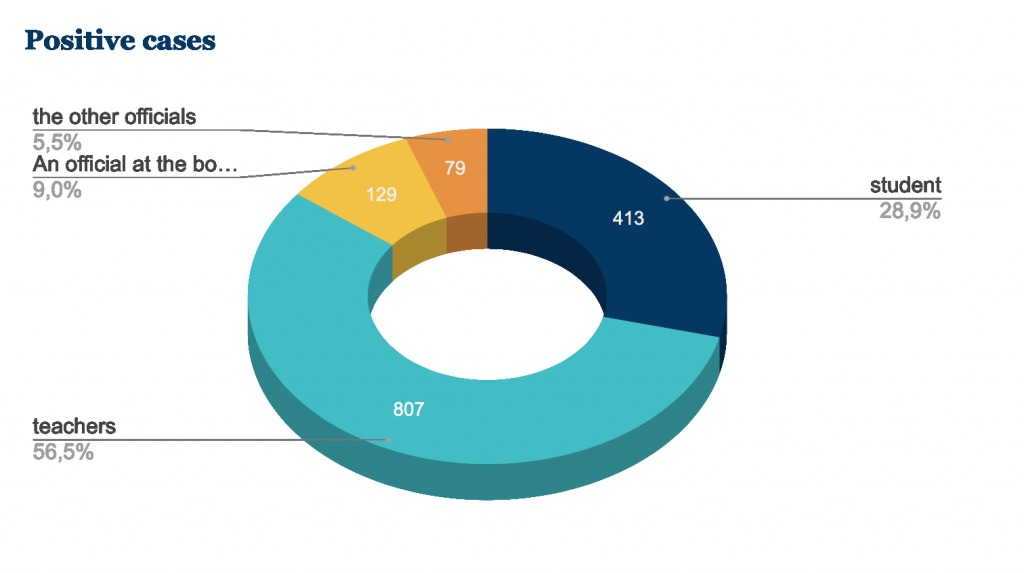
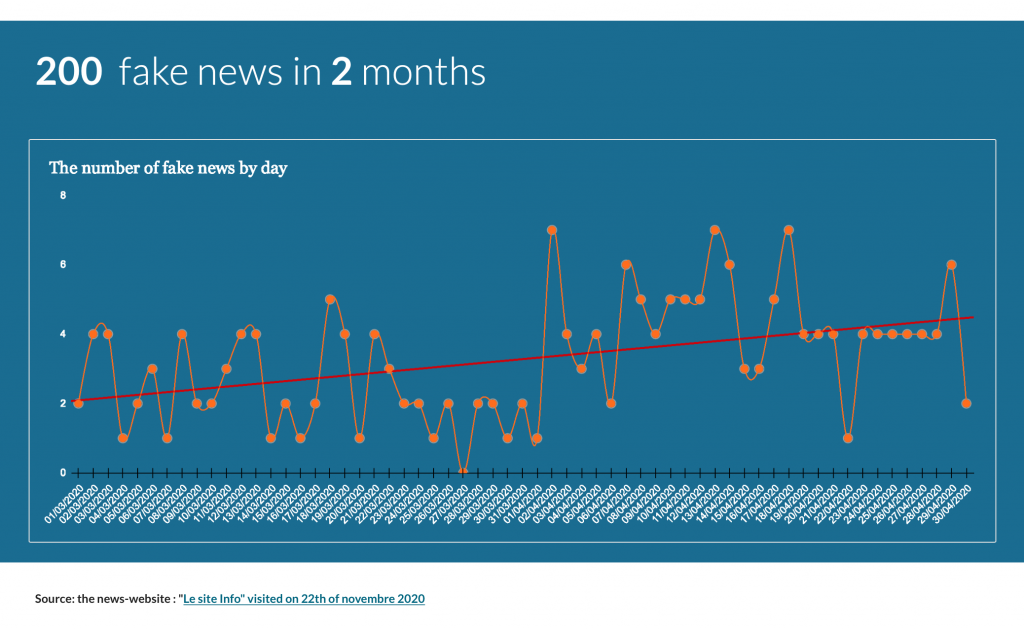
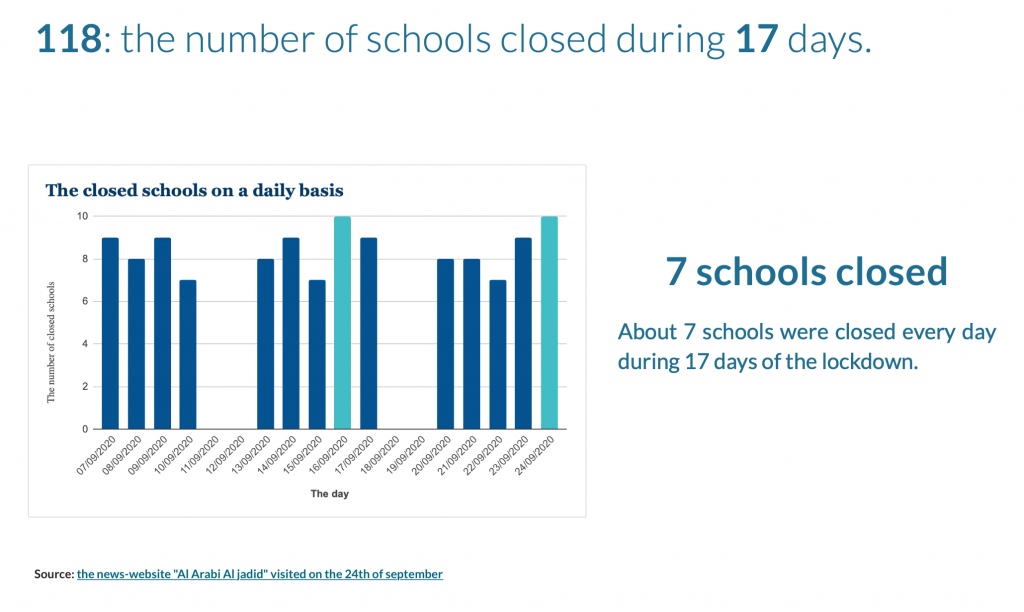
The first digital platform in Morocco to counter fake news “tahaqaq-تحقق“
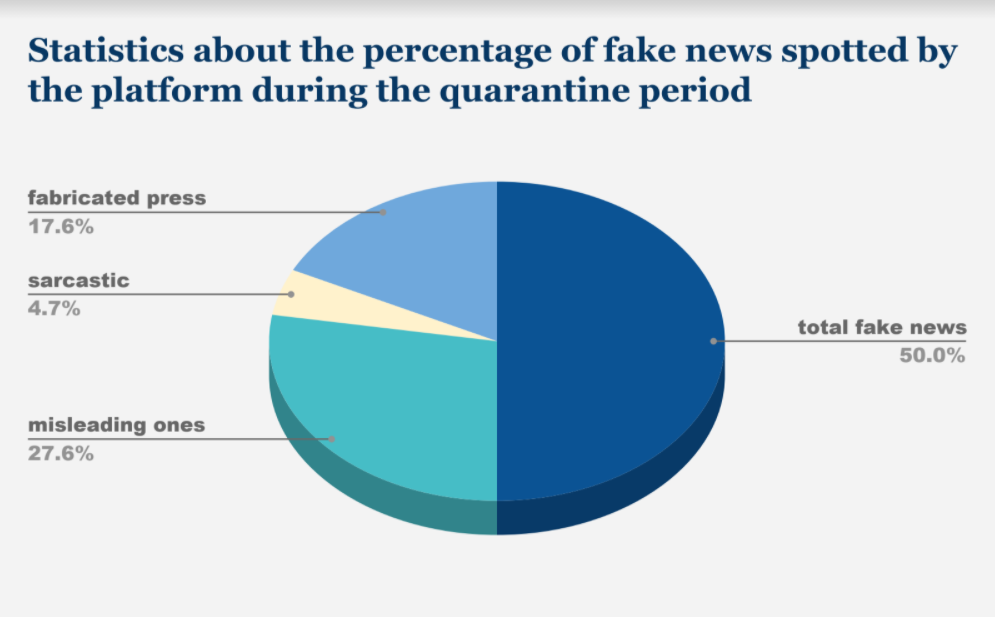
A survey focusing on distance learning was conducted by the Ministry of Education amongst 100 000 participants consisting of students, teachers, families as well as some 20 000 additional participants has concluded that, overall, distance learning has played a significant part in restoring the public opinion matter pertaining to education, school and teachers and has helped build and facilitate direct communication between community and the educational body.
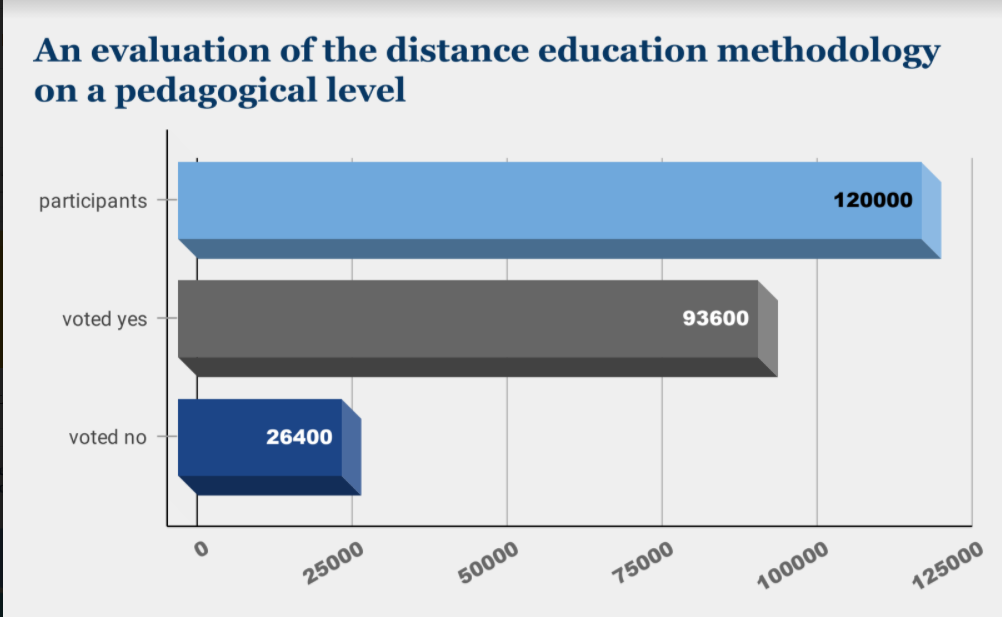
As far as pedagogy goes, this survey shows that distance learning has an approval rate of 78% with participants arguing that e-learning is a great transition step towards the digitization of school programs which would be a valuable addition once traditional learning resumes. On the other hand, distance learning and the alternative have programs issued by the ministry of Education garnered a disapproval rate of 22% which amounts to 26.400 participants.
CONCLUSION
Overall, it is difficult to verify the impact of the pandemic on education in terms of quantity and quality due to the limited data and statistics.
What is available is basically official. According to the Ministry of Education, the number of enrollments in pre-schools increased, for example, this year up to more than 910,000 children, with an expected enrollment of about 140,000 new children.
It is noticed that a number of students left private education and registered in public education due to their inability to pay school fees as a result of the pandemic economic crisis, which may had an impact on the level of learning. Despite the efforts made by the media in the midst of this crisis, it appears that the education didn’t receive broad press coverage.
Was the number of fake news higher compared to the period prior to the pandemic? There are not enough data to judge the phenomenon yet. Some media organizations and individuals have taken initiatives to monitor fake news, and some publishers of fake news have been arrested (12 persons in march 2020 according to the BBC who quotes from security sources).
However, efforts have remained limited regarding the mobilization of the mass media and the regulation bodies in order to combat this phenomenon. The National Press Council issued a report on the state of the press during the pandemic period, in which it recorded the existence of professional slips and “breaches of ethical rules,” including “misinformation and plagiarism, without indicating their sources and lack of respect for privacy and the right to image.”
But the report did not give detailed statistics and figures. It provided recommendations to qualify the journalistic work to fulfill its roles in the areas of awareness, training and crisis management. A leader — Nelson Mandela — has once said: “Education is the most powerful weapon that can be used to change the world”.
